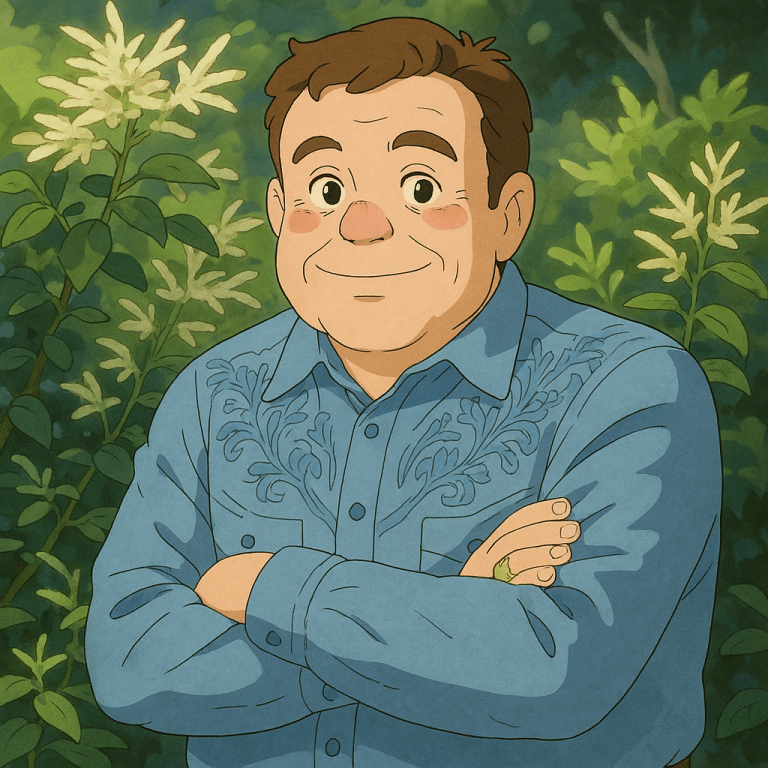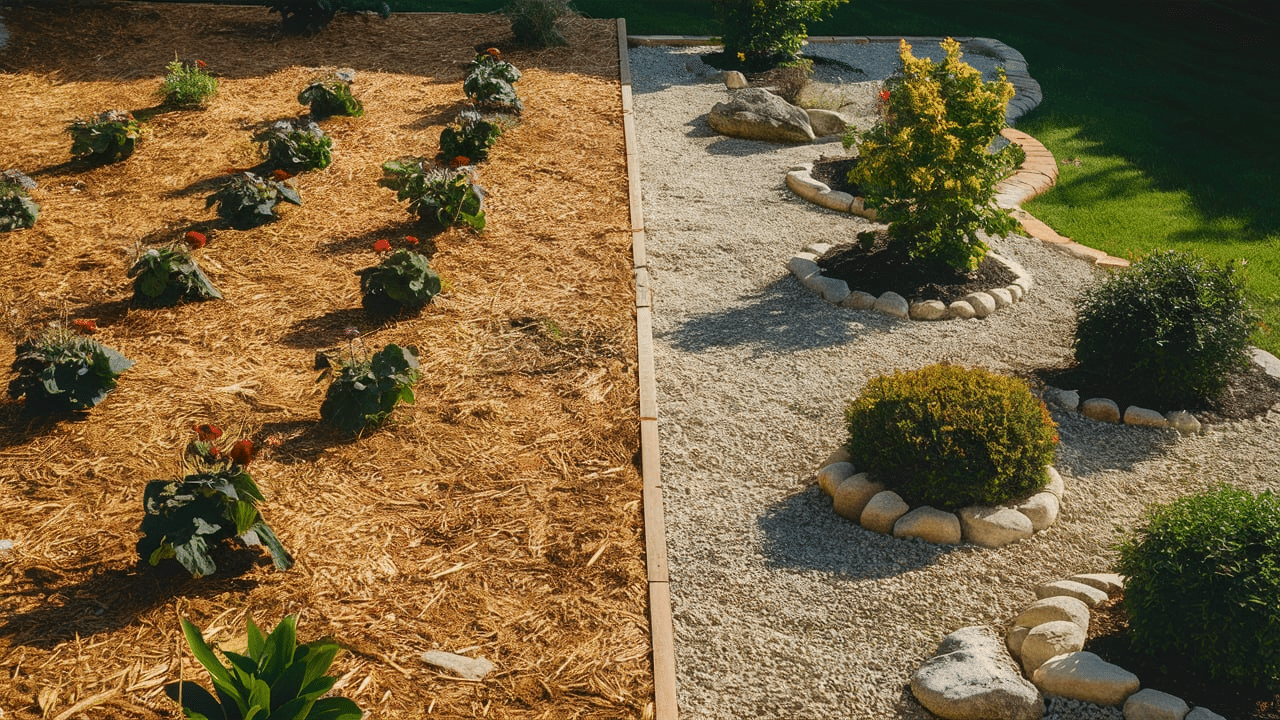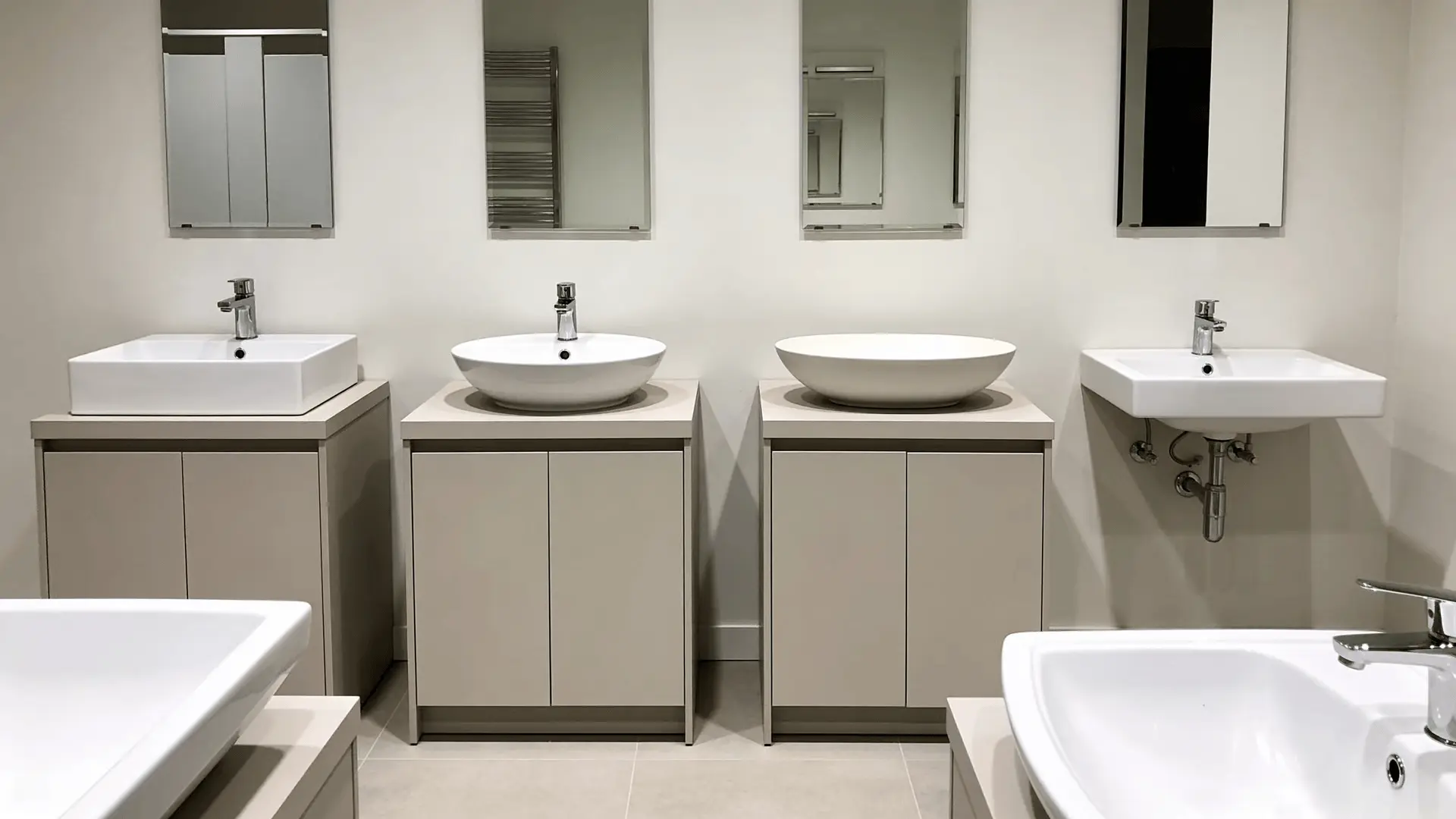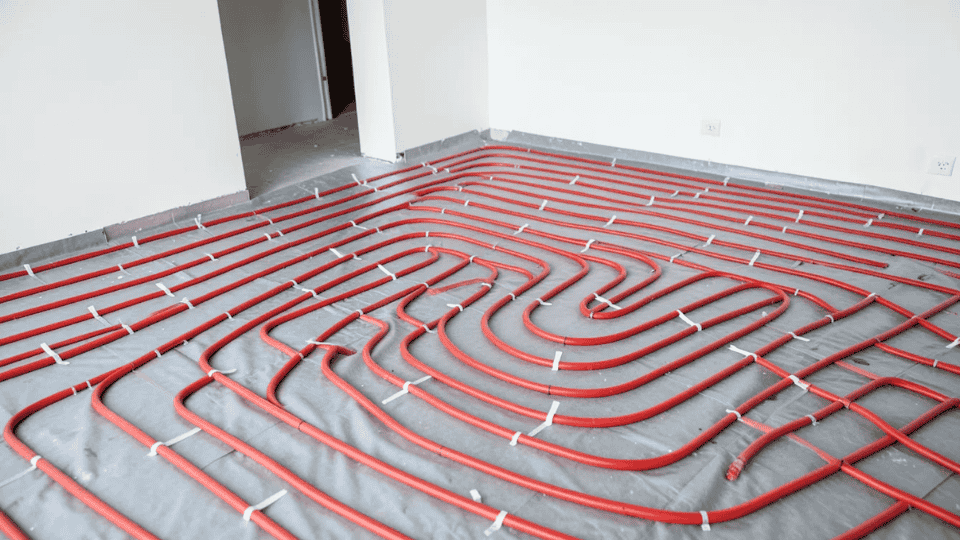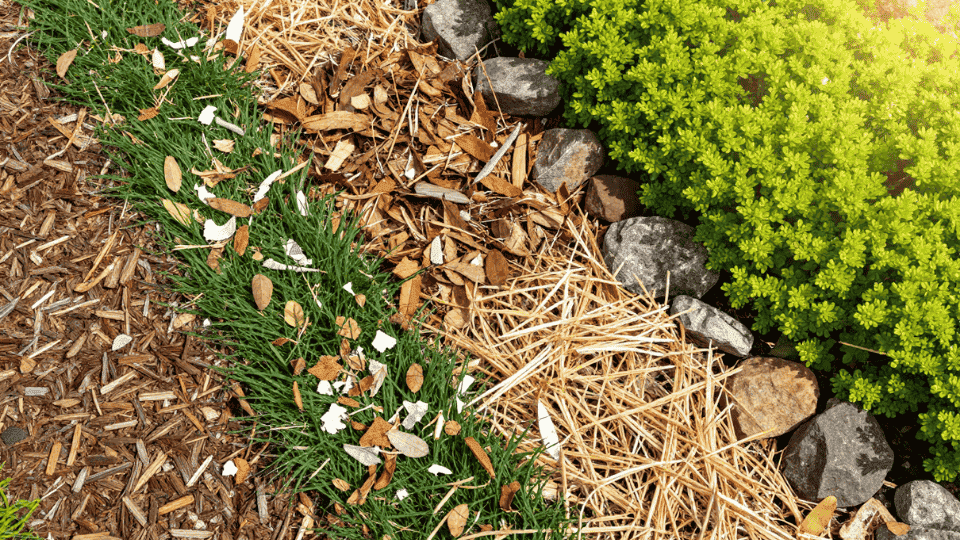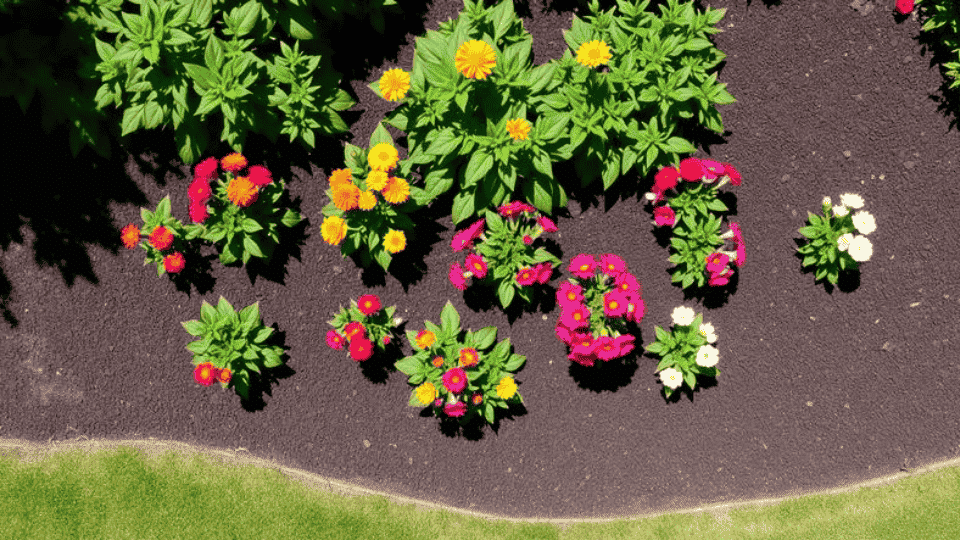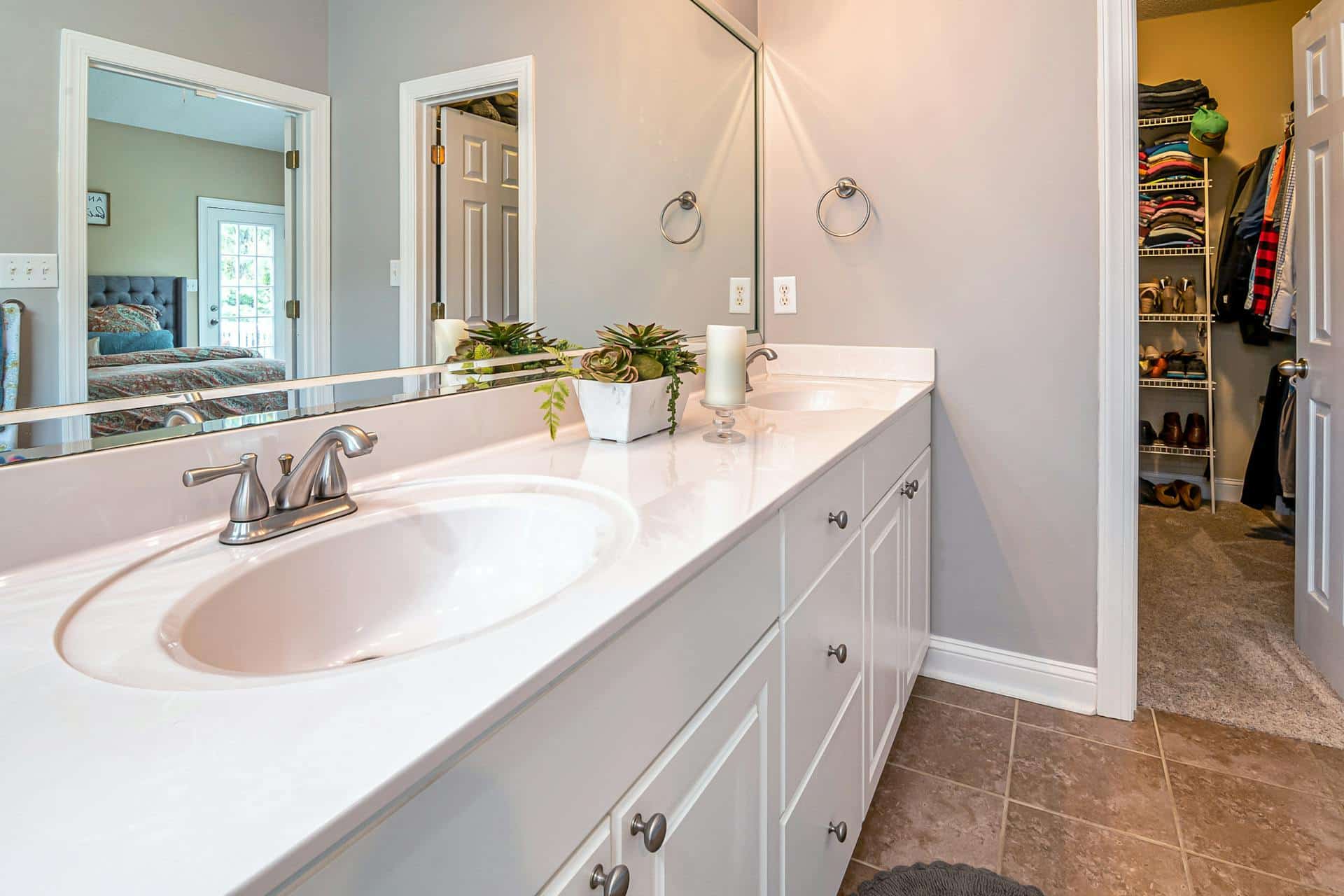If you’re tired of replacing mulch every year, rocks might be the perfect solution for your garden. I’ve found that using rocks instead of mulch can save you time and effort.
Rocks don’t decompose like mulch, so you won’t have to replace them as often. They also help with drainage, which can be helpful for areas with heavy rainfall.
Plus, rocks come in various sizes and colors, letting you create a clean, modern look in your garden. If you want a low-maintenance option that still looks great, switching to rocks might be just what your garden needs.
In this blog, I’ll share some simple tips on how to use rocks in your landscaping and the benefits they bring.
Understanding Rocks and Mulch
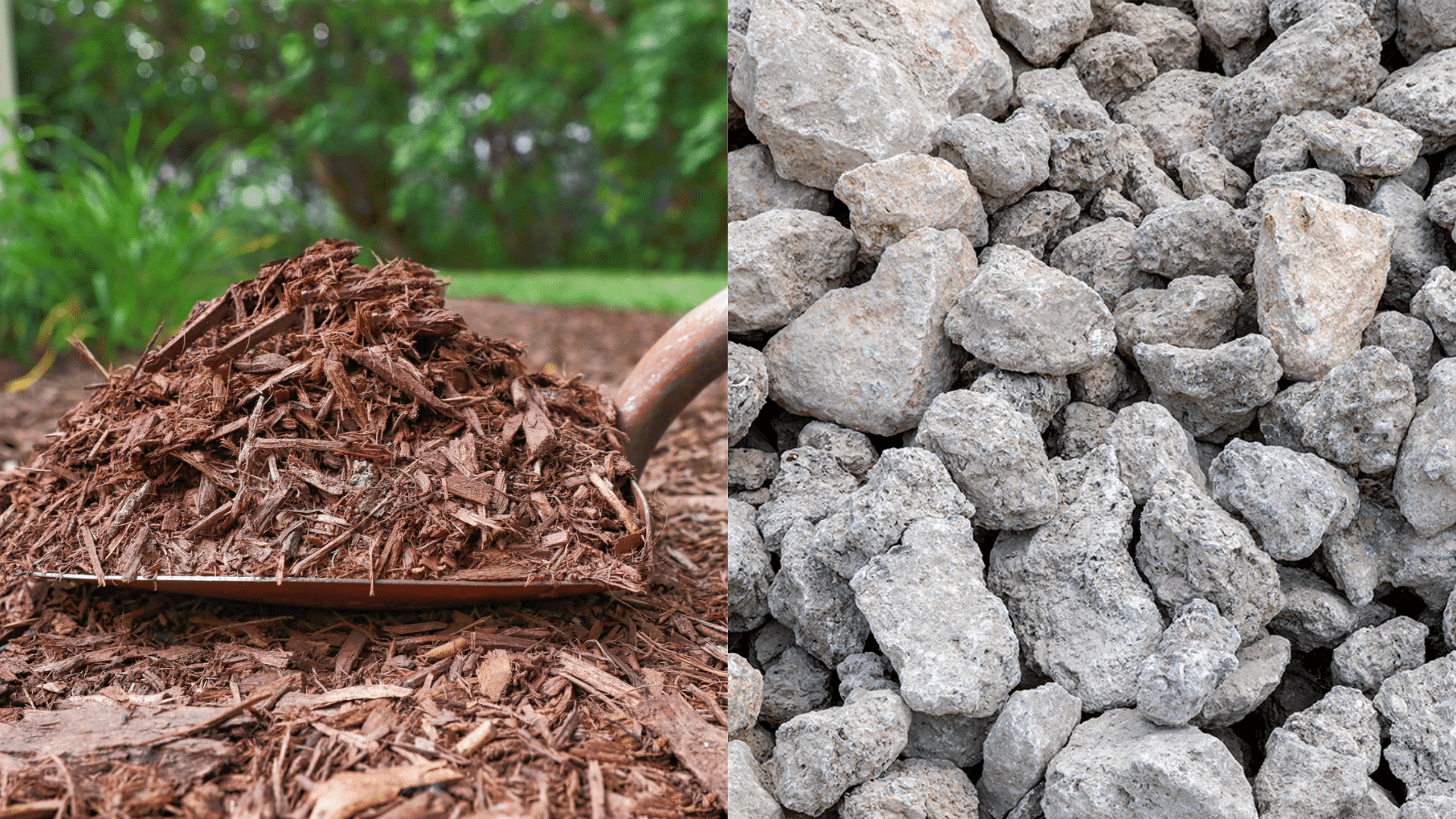
Rocks and mulch are two popular choices for landscaping, but they serve different purposes and have unique benefits.
Mulch is made from organic materials like wood chips, bark, or leaves, and it decomposes over time. It helps retain moisture, suppress weeds, and improve soil health. However, you’ll need to replace it regularly since it breaks down.
On the other hand, rocks are a long-lasting, low-maintenance option. They don’t decompose, which means they don’t need replacing every year.
Rocks are great for areas with good drainage and can create a modern, clean look in your garden.
While they don’t improve soil health like mulch, they can prevent weed growth and keep moisture in the soil, especially when used with a weed barrier underneath.
Both have their advantages, and the choice depends on your garden’s needs and style.
Advantages of Using Rocks Over Mulch
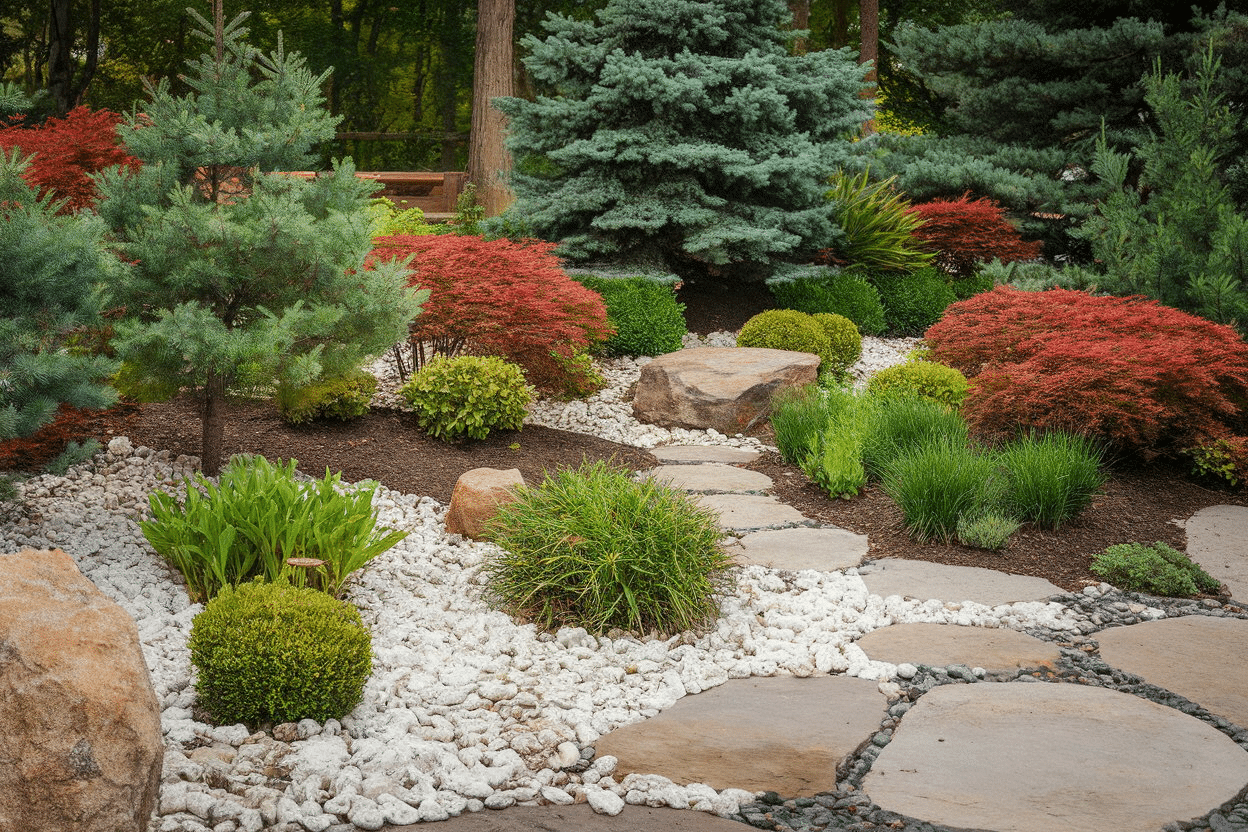
Picking rocks instead of mulch for your yard or garden offers several benefits. Many people are making the switch because rocks can be a smarter, easier option in the long run. Here’s why:
1. They Last a Long Time
Rocks don’t wear out like mulch does. Mulch breaks down over time and needs to be replaced every one to two years. But rocks? Once you put them in place, they stay there for many years.
This means you don’t have to keep buying and spreading new material. You save both time and money because you’re not doing the same job over and over.
2. Easy to Take Care Of
Rocks don’t need much work. You don’t have to rake the roof after fixing repairs after a big storm. They won’t blow away in the wind like mulch sometimes does.
Once they’re in the ground, you can mostly leave them alone. That makes them great if you don’t want to spend a lot of time doing yard work.
3. Help Block Weeds
Nobody likes pulling weeds. If you use rocks, especially with a layer of landscape fabric underneath, you’ll see way fewer weeds popping up.
The fabric stops weeds from growing through the soil, and the weight of the rocks keeps the fabric in place. This means your garden can look neat and clean without as much weeding.
4. Lots of Styles to Choose From
Rocks come in all sorts of shapes, sizes, and colors. You can use small ones, such as pea gravel, or larger ones, like river rocks. Some are round and smooth, while others are rough and sharp.
Because of all these choices, you can match the look of your yard however you want – natural, neat, simple, or colorful. There’s something for everyone.
5. Safer in Hot and Dry Weather
In areas that experience extreme heat and dryness, mulch can dry out and even catch fire. Rocks won’t do that.
They don’t burn, so they’re a safer choice if you live in a place where wildfires or heat waves happen often. This helps protect your home and garden during extreme weather conditions.
6. Stops Soil From Washing Away
On slopes or hills, mulch can move when it rains hard. Rocks are heavier, so they stay in place and help hold the soil down.
This is really useful for keeping your yard from getting washed out during storms. If your garden is on uneven ground, rocks can be a smart way to keep everything in place.
Potential Drawbacks of Using Rocks
Even though rocks have a lot of good points, there are a few things to think about before you decide if they’re right for your garden:
- They Hold in Heat: Rocks absorb and hold heat, which can warm up the soil too much, stressing plants that prefer cooler ground.
- Higher Starting Price: Rocks can be more expensive upfront due to purchasing, delivery, and installation costs, but they last longer than mulch.
- No Natural Food for Soil: Unlike mulch, rocks don’t break down and provide nutrients to the soil. You’ll need to add compost or plant food for plant health.
- Harder to Move Later: Once rocks are in place, they’re heavy and difficult to move, so plan your layout carefully before spreading them.
Comparing Rocks and Mulch: A Quick Overview
Still unsure if rocks or mulch are better for your garden? Here’s a quick and easy side-by-side look to help you decide:
| Feature | Rocks | Mulch |
|---|---|---|
| Longevity | Can last 10 years or more | Usually needs replacing every 1–2 years |
| Maintenance | Very low – set it and forget it | Needs regular care and fresh layers |
| Weed Control | Great at blocking weeds (even better with fabric) | Helps some, but weeds can still get through |
| Soil Enrichment | Doesn’t break down or help the soil | Organic mulch adds nutrients over time |
| Heat Retention | Gets hot in the sun, can warm the soil too much | Keeps soil cool and protects roots |
| Visual Choices | Many styles, colors, and shapes | Natural look with wood and bark colors |
| Cost | Costs more at first, but it lasts a long time | Cheaper at the start, but adds up over time |
Ideal Situations for Using Rocks in Landscaping
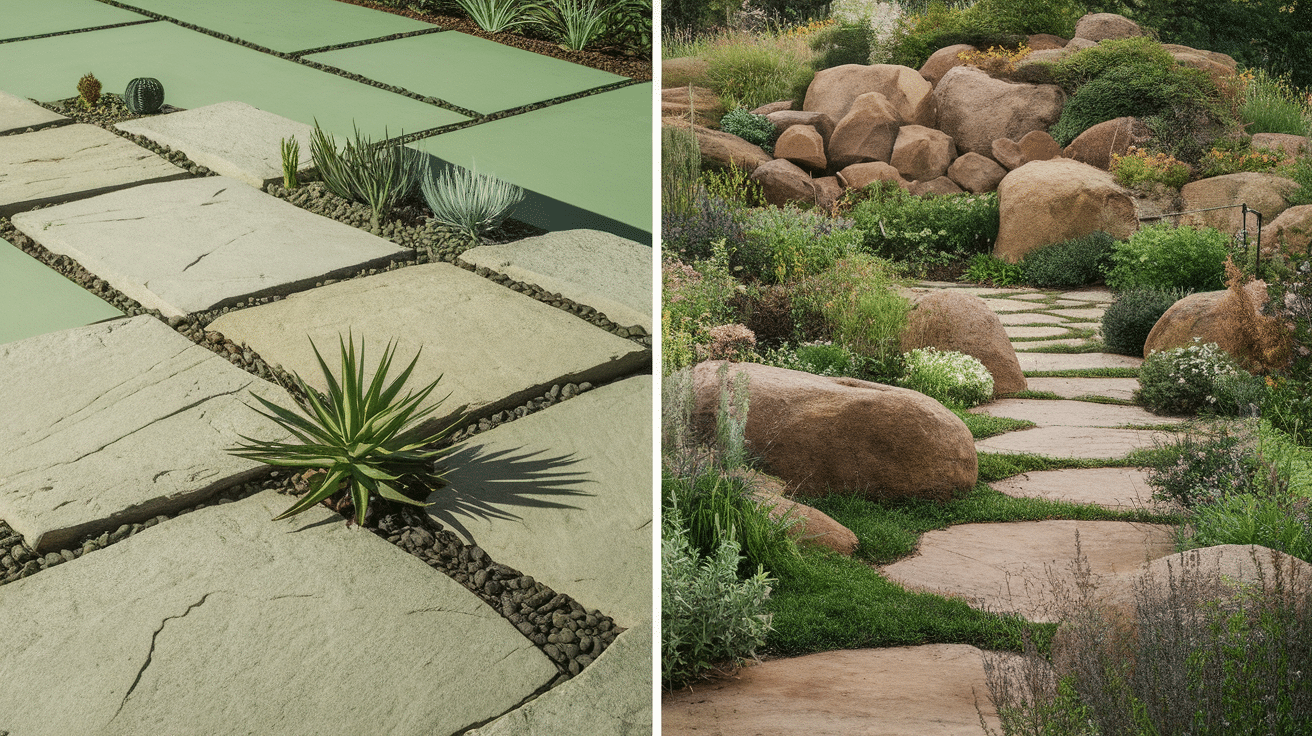
Rocks aren’t just useful – they also look good in the right places. Here are some of the best times and spots to use them in your yard or garden:
Dry-Climate and Water-Saving Gardens
If you live in an area that receives little rainfall, reducing your water usage is essential, and rocks are a smart choice. Unlike mulch, rocks don’t hold water or break down.
That means they won’t take water away from your plants. Rocks work well with plants that are adapted to dry soil, such as cacti and succulents.
These types of gardens, which require very little watering, can look clean and be easy to maintain.
Fire-Safe Areas
In areas where wildfires are a risk, safety is crucial. Since mulch can catch fire, it might not be the best choice near your house.
Rocks don’t burn, making them a safer option for fencing or creating a barrier between your home and dry plants or grass. This can reduce the risk of fire spreading and provide you with peace of mind.
Simple and Clean Yard Styles
If you like a clean and neat yard, rocks can help you get that look. They work well in yards that have a simple design.
You can use them to outline paths, fill in spaces between stepping stones, or group around certain plants to draw attention to them.
Their shapes and colors allow you to design a yard that feels clear and organized without needing many extra items.
Busy Areas With Lots of Use
In parts of your yard where people or pets walk often, mulch can get kicked around or worn down quickly. It might even blow away in strong winds.
Rocks are stronger and remain in place, even when frequently stepped on. That makes them a better choice for walkways, dog runs, or play areas where you need something that lasts and looks good over time.
Conclusion
I hope this blog has provided you with a clearer understanding of the benefits and drawbacks of using rocks in your garden.
After trying both mulch and rocks in my own yard, I’ve found that rocks can be a great, low-maintenance option for certain areas.
They last longer, help with drainage, and come in a variety of colors and sizes to suit any style. However, it’s important to consider your climate, the plants you’re growing, and the specific needs of your garden before making the switch.
While rocks may cost more upfront, they can save you time and money over the years. If you’re looking for a clean, modern look or a fire-safe solution, rocks might just be the right choice for your garden.
Always take the time to plan and choose wisely for the best results!

